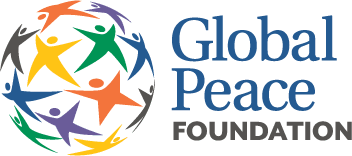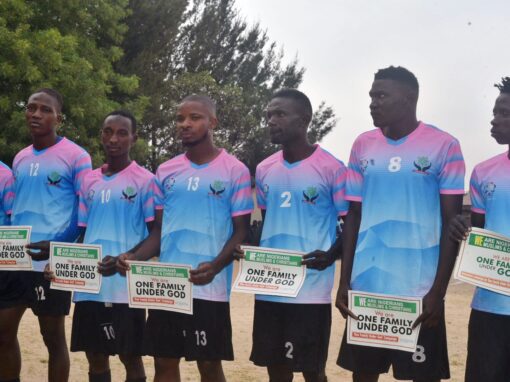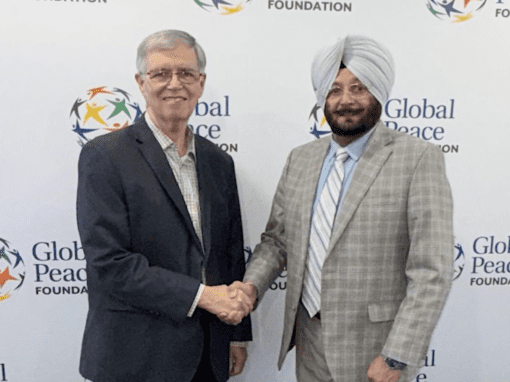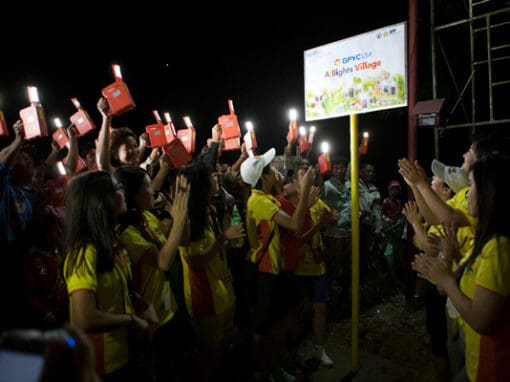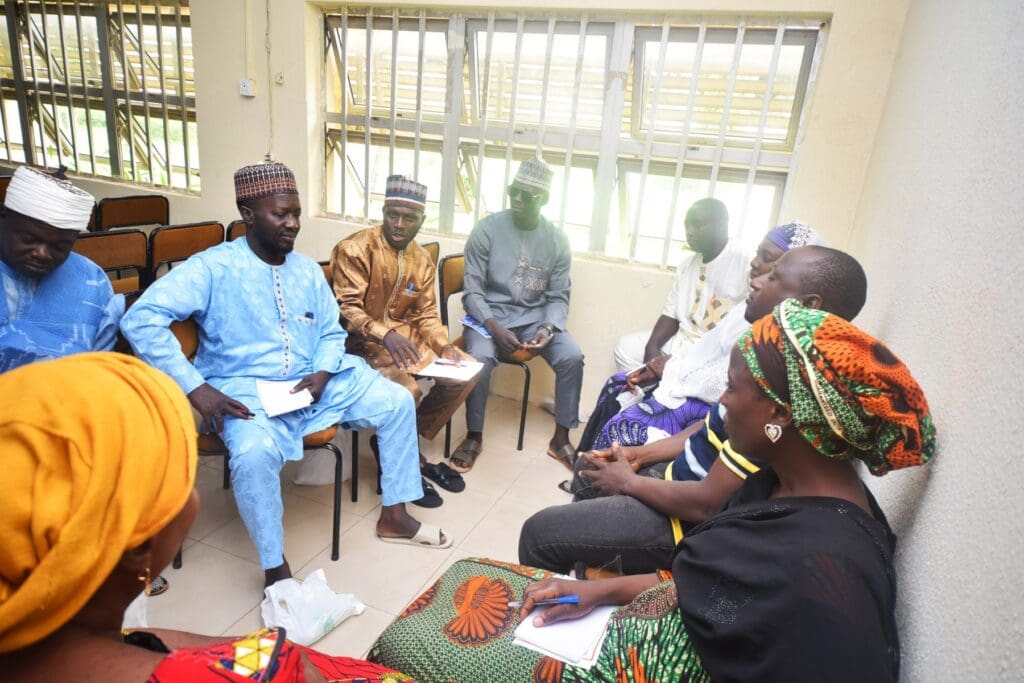
GPF Nigeria works with local leaders to mend divides through consistent workshops, surveying, and service projects.
For decades, Kaduna State has been marked by recurring cycles of communal and religious violence, often leaving behind shattered relationships, broken trust, and deep scars of division. As one of Nigeria’s most diverse states, with sizable Christian and Muslim populations, its communities have long reflected the challenges and possibilities of interfaith coexistence. It is within this fragile context that the Global Peace Foundation (GPF) Nigeria began its interventions, working patiently to mend divides and cultivate a culture of peace in communities such as Hayin Banki, Mando, and Maraban Rido.
GPF Nigeria’s work in these communities began at different points in time, but with a shared goal of restoring dialogue and trust. In Hayin Banki, interventions started in 2014, at a time when tension and suspicion were deeply rooted in daily life. Neighbors from different faiths rarely interacted, and mistrust was so pervasive that even greetings across religious lines were uncommon. Through consistent dialogue sessions and interfaith activities, GPF Nigeria created spaces for Muslims and Christians to meet, exchange perspectives, and rediscover their shared humanity. Over the years, this steady engagement has led to remarkable transformations. Today, residents of Hayin Banki speak of cooperation that was once unimaginable. They now celebrate Christian and Muslim festivals together, conduct joint graveyard cleaning, and organize regular peace dialogues. One resident, Sanusi Shehu Galadima, recalled, “Before the 2000 crisis, we lived peacefully, celebrating together. The crisis broke us apart, but GPF Nigeria helped heal our wounds. We now maintain cemeteries together and celebrate our festivals side by side. The sense of shared humanity has returned.”
In Mando, the foundation began its work in 2015, in the aftermath of the 2011 elections that had left the community deeply divided along political and religious lines. Traditional and religious institutions struggled to contain the rising tension. GPF Nigeria stepped in to strengthen these structures, helping leaders build inclusive systems of cooperation that bridged religious divides. Over time, trust was rebuilt through shared celebrations and joint projects that reflected the community’s collective strength. A notable example came when a philanthropist, guided by a Christian traditional ruler, built a borehole in an Islamic school, a simple yet powerful symbol of unity. Engr. Umar Sanga, a Mando community member, reflected, “The awareness of peaceful coexistence has grown in Mando.”
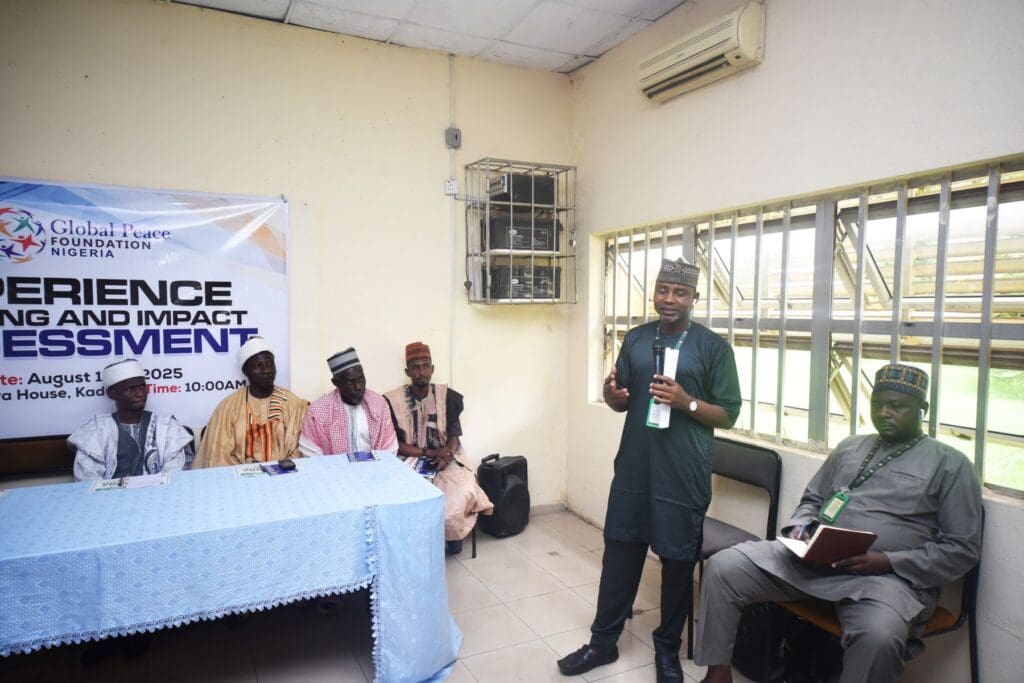
GPF Nigeria works with local leaders to mend divides through consistent workshops, surveying, and service projects.
The story of Maraban Rido is equally compelling. Violence and mistrust had once driven families apart, weakening economic and social ties. Many residents remembered a time when traveling through the area during crises was dangerous, as hostility and suspicion ran high. GPF Nigeria’s entry into the community in 2015 marked a turning point. The foundation organized dialogue sessions, roadshows, and recreational activities that encouraged interfaith interaction, particularly among young people. Football matches brought Muslim and Christian youth together on the same field, while family visitations across religious lines helped rebuild trust in homes and neighborhoods. Today, community members describe a very different atmosphere. Mamman Auta observed, “Our community has moved from mistrust to openness.”
Religious leaders have played a crucial role in sustaining this momentum, encouraged by GPF Nigeria’s emphasis on interfaith leadership. Rev. Steven Okeh, Chairman of Christian Association of Nigeria (CAN) Kaduna North, captured this spirit when he remarked, “Whenever I attend a program, the first thing I look out for is the presence of Jama’atu Nasril Islam (JNI) as my religious brothers in the work of peace.” His counterpart, Rev. Inusa of CAN Kaduna South, reminded participants of the role of families in peacebuilding: “I advise parents to focus more on proper home training of their children. Peace begins in the home, and if we fail there, we fail everywhere.” Imam Sani Aliyu of Maraban Rido echoed these sentiments, stressing that “no religion encourages the killing of another person simply because of different beliefs. Religious leaders must always use their holy books as reference points to guide people toward peace and harmony.”
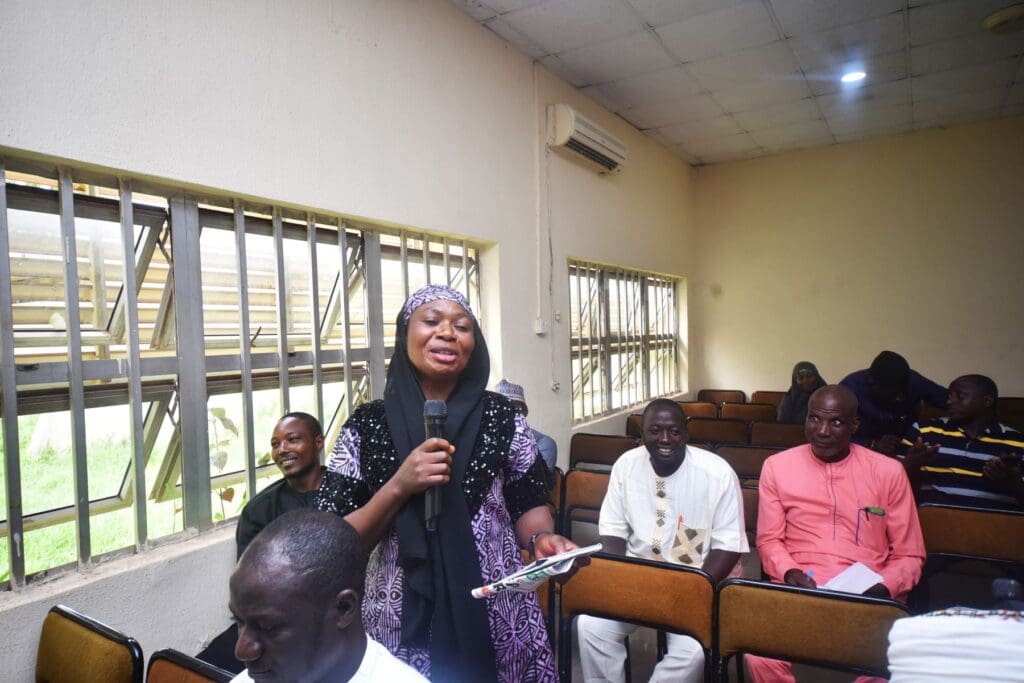
GPF Nigeria works with local leaders to mend divides through consistent workshops, surveying, and service projects.
The cumulative effect of these efforts is evident. Communities once divided now demonstrate unity in action through shared festivals, joint community service, strengthened leadership structures, and new forms of interfaith cooperation. Trust, once eroded, has been steadily restored, and dialogue has become the foundation for addressing challenges. While difficulties remain, particularly limited resources, youth unemployment, and the need for continuous sensitization, the commitment of both communities and GPF Nigeria is clear. Communities have pledged to establish peace hubs, organize annual peace celebrations, and hold regular dialogues, while GPF Nigeria has committed to facilitating quarterly experience-sharing forums to sustain progress.
The journey of peacebuilding in Hayin Banki, Mando, and Maraban Rido exemplifies the power of dialogue, shared values, and collective responsibility. From broken trust to restored relationships, from fear to cooperation, these communities demonstrate that reconciliation is possible when peace is nurtured with patience and consistency. As Rev. John Joseph Hayab, Country Director of GPF Nigeria, reminded participants, true and lasting peace cannot be imposed from outside; it must be owned and sustained by the people themselves.
Through its interventions, GPF Nigeria has helped create a model of interfaith collaboration and community resilience that offers hope not only for Kaduna but for Nigeria, and other nations globally.
